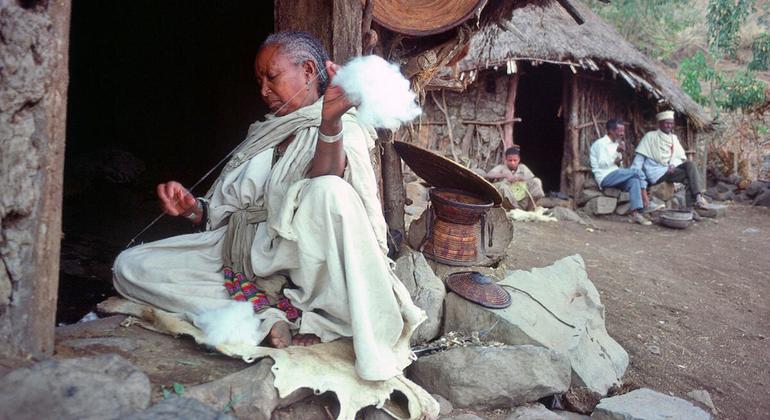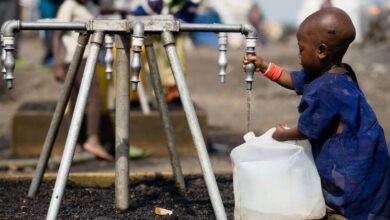World Cotton Day focuses on the role of textile fibers in socio-economic development |

An estimated 100 million farming families across 80 countries are directly dependent on the cotton industry, in which women play a key role.
Cotton supports the economies of many low-income and emerging countries.
Last year, it contributed about $50 billion to their economic support — and $20 billion in global trade, according to FAO.
Furthermore, it plays an important role in economic and social development, international trade and poverty alleviation, and it contributes to Agenda 2030 for sustainable development and Sustainable development goals (SDG).
Culture is important
The cultural importance of cotton, with its origins at the heart of human civilization, has been recognized by the General Assembly in August 2021when it declares the 7th of October every year to be World Cotton Day.
It is the most important of all natural fibers, used daily in clothing and home furnishings, and an important source of export earnings for some of the world’s poorest countries.
Many challenges
This day highlights the need for a sustainable cotton industry that enhances yields, nutrition, the environment and lives, leaving no one behind.
However, market price fluctuations, climate change, pests, COVID, and global recession are issues that are challenging the industry.
Furthermore, cotton faces a number of uncertainties in terms of both production and demand that need to be appropriately addressed if the sector is to reach its full potential in supporting economic growth and sustainable development.
More investment is needed to expand this sector beyond raw cotton production and create new income opportunities, especially for farmers, by adding value to cotton yarn and developing by-products from cotton. other parts of the cotton plant.

Cotton production contributes significantly to Mali’s economy despite often challenging trade conditions.
Wonders of cotton
-
Cotton provides jobs and income for millions of farmers, workers and their families.
-
It represents an important source of foreign exchange earnings for low-income countries,
-
And offers a way to address broader development concerns to empower women and promote youth employment.
Stepped up
The United Nations agencies worked towards the mission of optimizing production and enhancing local processing capacity, and discussed reforms needed to address high trade barriers and inequality for cotton producers in developing countries. Cotton Initiative.
And FAO has long asked developing countries for technical and policy support to boost productivity and create more opportunities in the cotton value chain.
Boubaker Ben Belhassen, FAO’s Director of Trade and Markets, reminded that the goal of the global celebration is to “draw attention to the hundreds of millions of people around the world who earn their livelihood through cotton value chain,” and emphasizes the industry’s contribution to development.
Yarn development
-
Innovative technologies and resources are critical to ensuring that the sector remains viable and sustainable.
-
Investment is needed to expand this sector and create new income opportunities by developing by-products from other parts of the cotton plant.
-
An open, fair, predictable and transparent international cotton trading system is key to supporting hundreds of millions of vulnerable people.
-
Domestic support measures are important to prevent trade and other market distortions from impeding the benefits of trade liberalization.




